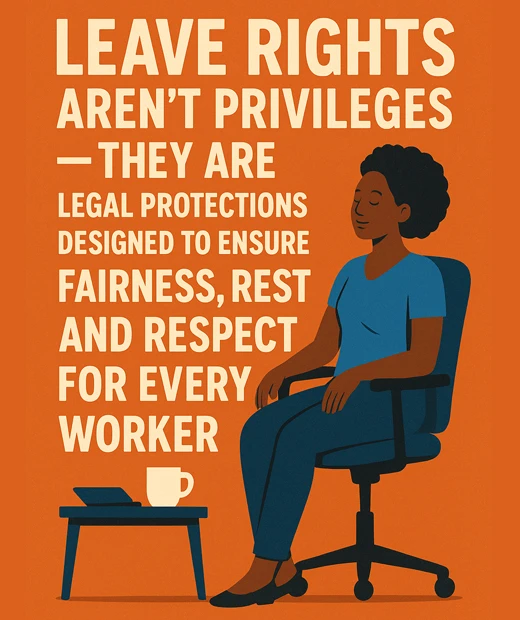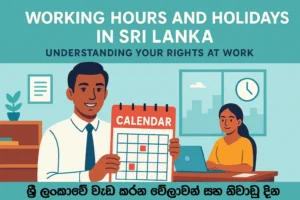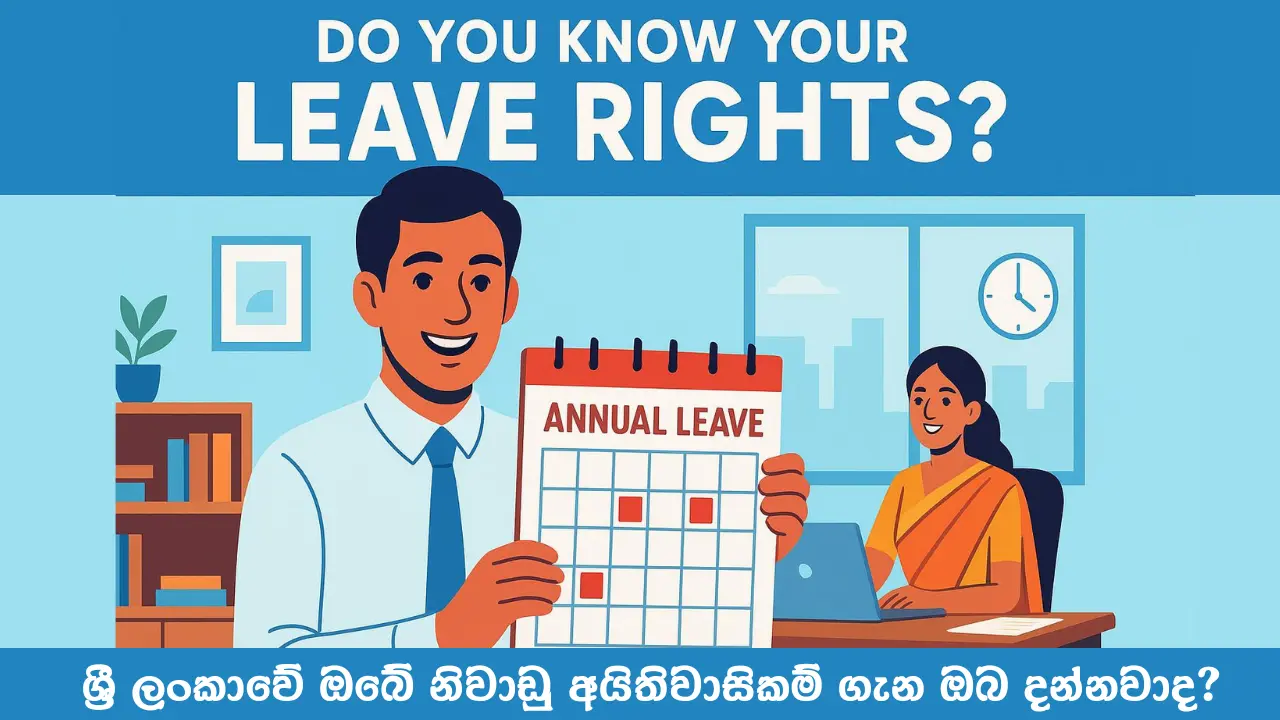Every employee in Sri Lanka is entitled to rest, recreation, and recognition of cultural and religious observances. The Shop and Office Employees (Regulation of Employment and Remuneration) Act, No. 19 of 1954, along with the Holidays Act, No. 29 of 1971, lays out the framework that governs annual leave, public holidays, and weekly rest days for workers. Knowing these rights ensures fair treatment and compliance in every workplace — from apparel factories to corporate offices.
1. Annual Leave Entitlements in Sri Lanka
Under Sri Lankan law, an employee becomes entitled to annual leave once they have completed 12 months of continuous service. However, the number of days for the first year depends on the employee’s start date.
For the first calendar year:
- 14 days – if employment begins between January 1 and March 31
- 10 days – if employment begins between April 1 and June 30
- 7 days – if employment begins between July 1 and September 30
- 4 days – if employment begins between October 1 and December 31
From the second year onward, employees are entitled to 14 days of paid annual leave after completing 12 months of continuous service.
Annual leave must be taken within 12 months of entitlement and can be split, though each segment should be at least 7 consecutive days. Employers cannot compel employees to work during their annual leave.
If an employee’s contract ends before they’ve used their annual leave, they are entitled to receive payment for the unused leave earned.
➡️ Reference: Section 6, Shop and Office Employees (Regulation of Employment and Remuneration) Act, 1954
2. Additional Annual Leave for Certain Sectors
Under the Wages Board Ordinance, certain trades and sectors (such as plantations, apparel manufacturing, and other regulated trades) may offer enhanced annual leave up to 21 days. These boards determine the specific entitlements applicable to their respective industries.
This ensures that employees in more demanding work environments receive additional rest and recovery time, reflecting the nature of their roles.
3. Paid Public and Festival Holidays
Sri Lankan employees are entitled to paid public holidays each year, commonly referred to as Festival Holidays. The government announces these annually, and they typically include around 16 days, covering national, religious, and cultural events.
Public holidays include:
- Thai Pongal Day
- National Day (Feb 4)
- Sinhala and Tamil New Year Days (April)
- May Day (May 1)
- Vesak Full Moon Poya Day and the Day After
- Poson, Adhi Esala, Binara, Vap, and Unduwap Full Moon Poya Days
- Id-ul-Fitr, Deepavali, and Christmas Day
If a public holiday coincides with a regular weekly rest day, no additional holiday is granted. Employees working on a public holiday are eligible for extra pay or compensatory leave, depending on the employer’s policy.
➡️ Reference: Section 7, Shop and Office Employees Act, 1954 and Holidays Act, No. 29 of 1971
4. Weekly Rest Days
Every employee is entitled to at least one and a half days of rest per week, at full pay.
However, if an employee works less than 28 hours per week (excluding overtime), this entitlement may not apply. Employers may postpone rest days in certain industries — such as retail or logistics — but only with approval from the Commissioner of Labour and under special circumstances.
➡️ Reference: Section 5, Shop and Office Employees (Regulation of Employment and Remuneration) Act, 1954
5. Case Study: Ensuring Compliance in Practice
Case Study: A Leading Colombo Retail Chain
A large retail employer in Colombo faced frequent disputes regarding leave scheduling and unpaid holidays. After an audit by the Department of Labour, the company introduced a digital HR leave management system aligned with the 1954 Act.
The new system automatically calculated entitlements based on start dates, tracked annual and public leave balances, and generated transparent records accessible to employees. Within a year, employee satisfaction improved by 35%, and compliance-related complaints dropped by 60%.
This case highlights how clear communication and digital record-keeping can ensure legal compliance and workplace harmony.

“Leave rights aren’t privileges — they are legal protections designed to ensure fairness, rest, and respect for every worker.”
Sri Lanka’s leave and holiday regulations, first established in 1954, continue to protect employees’ rights to rest and balance. Both employers and employees must understand these provisions to maintain transparent, fair, and compliant workplaces.
A well-informed workforce and responsible employers are the foundation of a productive, ethical, and globally respected Sri Lankan labour environment.
6. Why Awareness Matters
Many Sri Lankan employees are unaware of their full leave rights, especially in smaller private firms. Likewise, some employers fail to maintain accurate leave records or unintentionally misapply the Act.
By understanding and applying the provisions of the Shop and Office Employees Act, companies can:
- Avoid legal disputes and penalties
- Improve employee morale and retention
- Strengthen their social compliance standards, particularly for export-oriented sectors like apparel and logistics
Promoting leave awareness also aligns with Sri Lanka’s broader commitment to ethical labour practices and international compliance standards.









